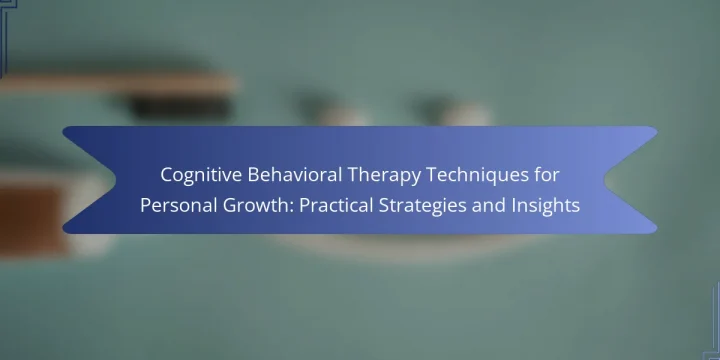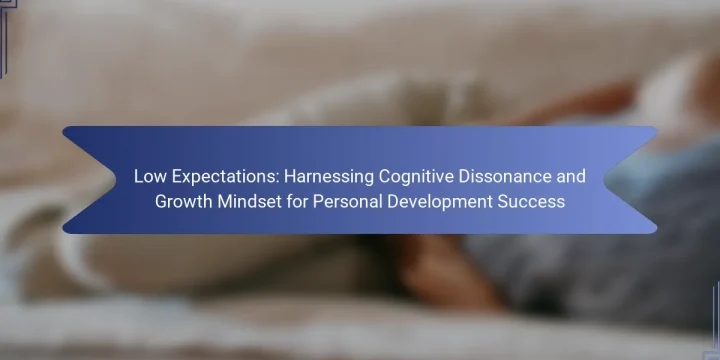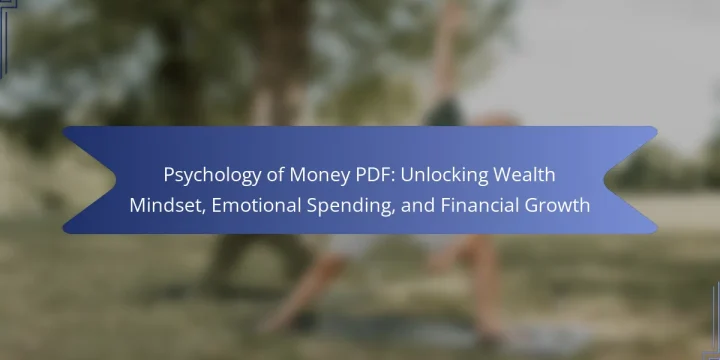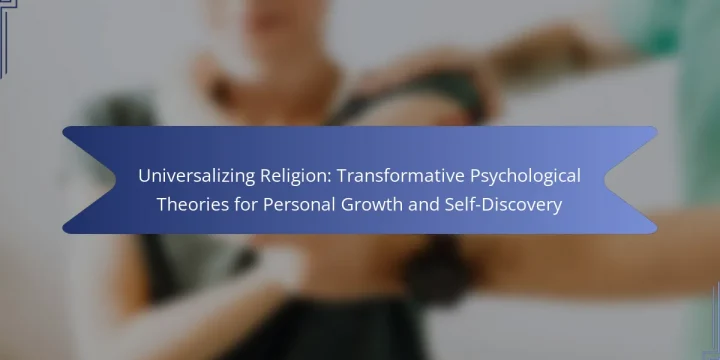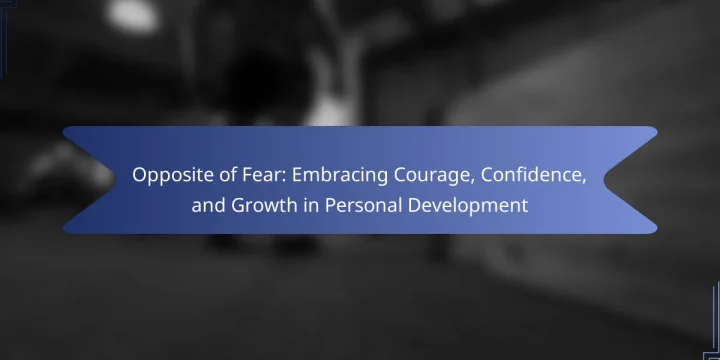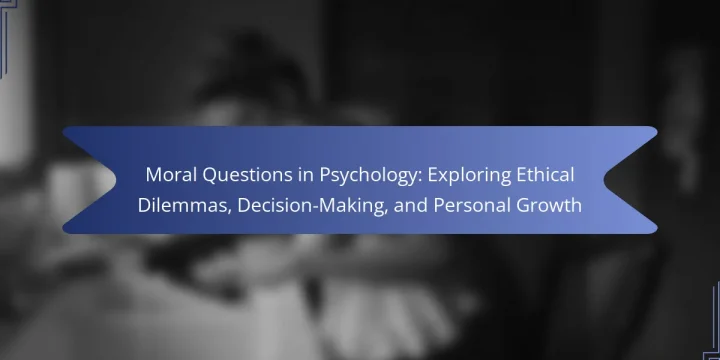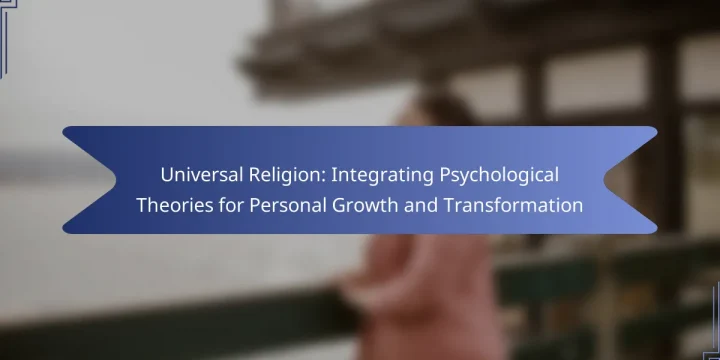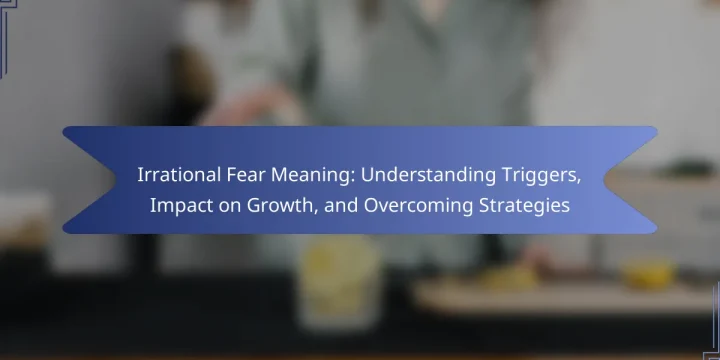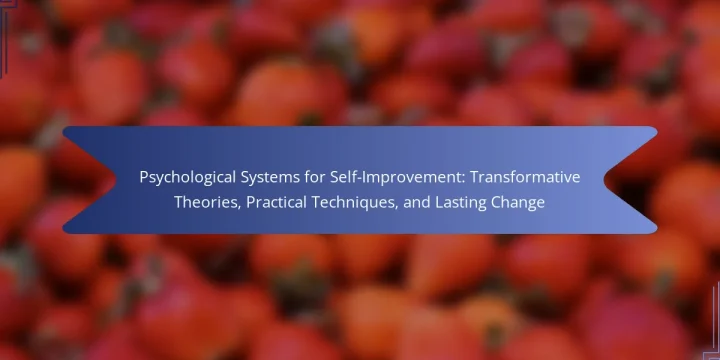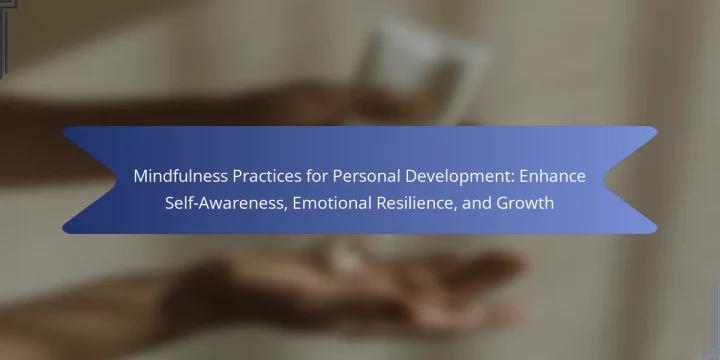
Mindfulness practices significantly enhance self-awareness, emotional resilience, and personal growth. Key principles include present-moment awareness, non-judgmental observation, and acceptance. Techniques such as body scanning, mindful breathing, and gratitude journaling are effective for personal development. Integrating mindfulness into daily life can lead to lasting transformation and improved emotional stability. What are the core principles of mindfulness practices? Mindfulness practices enhance self-awareness, emotional resilience, and personal growth through core principles. These principles include present-moment awareness, non-judgmental observation, and acceptance. Present-moment awareness encourages focusing on the here and now, reducing anxiety about the past and future. Non-judgmental observation allows individuals to acknowledge thoughts and feelings without criticism, fostering emotional resilience. Acceptance promotes embracing experiences as they are, which aids in personal growth and reduces resistance to change. Together, these principles create a foundation…
